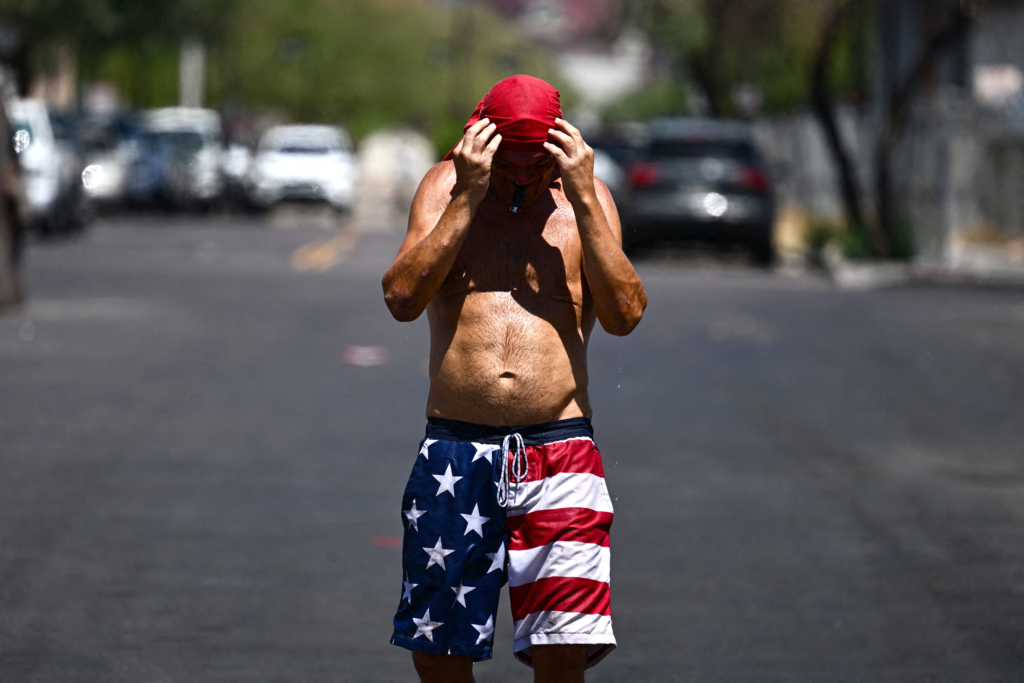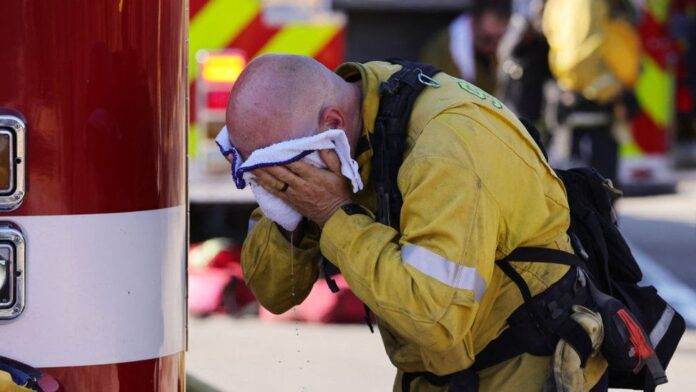In recent weeks, a relentless heatwave has swept across the United States, breaking records and posing significant health risks to the public. Cities like Phoenix, Arizona, have endured a staggering 24 consecutive days of temperatures exceeding 110F (43C). The extreme heat has not only taken a toll on physical well-being but has led to a surge in severely burned patients who have come into contact with dangerously hot surfaces or objects.
Medics in Arizona have witnessed a concerning rise in patients suffering from contact burns caused by scorching concrete and asphalt surfaces. The state’s Arizona Burn Centre has seen all 45 hospital beds occupied, with nearly one-third of patients experiencing severe burns due to touching hot surfaces. The majority of victims include vulnerable groups such as the elderly, who may have fallen after becoming disoriented in the extreme heat, and children who are slower to react after a fall.
However, one particular issue stands out as the “biggest problem” in this heatwave: drug users. Dehydration and fainting episodes on sidewalks have led to extended contact with the burning ground, resulting in heat exhaustion and severe burns within a matter of minutes. The severity of some injuries has been so profound that skin grafts are required to aid recovery.
Even beyond hospital admissions, over 150 individuals in Arizona require treatment for burns sustained by touching hot surfaces like metal car seat belts. Research has shown that the inside of a car or the dark asphalt surface of a road can become significantly hotter than the air temperature, making a few seconds of contact enough to cause severe burns.

The situation has prompted action from local communities and volunteers who have come together to form the Heat Relief Network in Maricopa County, Arizona. With 235 cooling and hydration sites established, individuals without shelter can access air-conditioned spaces and water to stay safe during the heatwave. These centres, often run by volunteers and non-profit organizations, provide essential respite to hundreds of people every week.
As the heatwave spreads eastward, nearby regions like Las Vegas have also experienced cases of severe surface burns. A 73-year-old US Air Force veteran, Christopher Malcolm, suffered burns after sitting on the ground at a bus stop on a day when temperatures reached 110F.
With the heatwave showing no signs of relenting, the focus remains on public safety, urging people to seek shelter from the fiery heat and be cautious when encountering hot surfaces. The rise in surface burns serves as a stark reminder of the dangers posed by the prolonged heatwave and the need for proactive measures to protect vulnerable populations during these extreme weather conditions.





